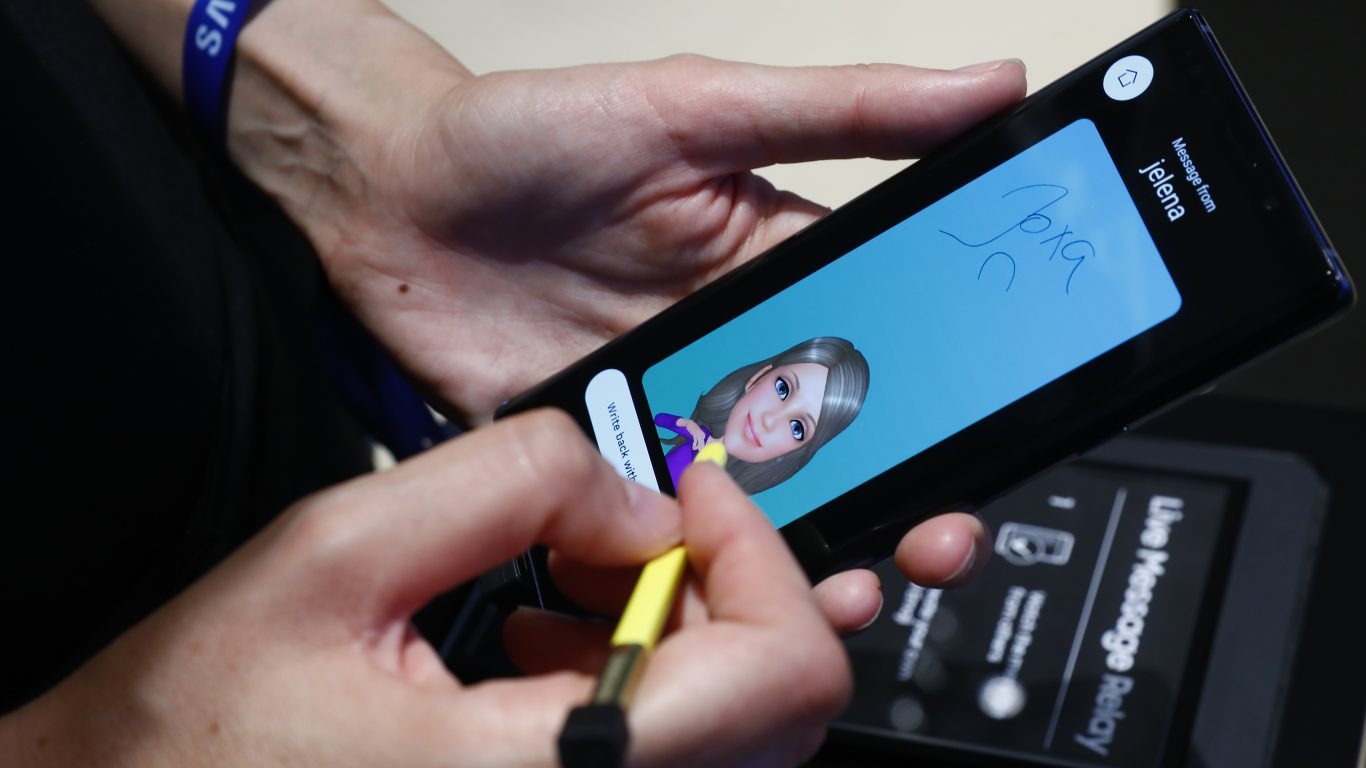
The U.S. market for smartphones is saturated. According to a report in February from Pew Research Center, 81% of U.S. adults owned a smartphone. What that means for smartphone makers is that American consumers have high expectations for the devices, expectations that have been met but that at the same time point to a lack of innovation in the industry, especially for phones costing less than $1,000.
Americans’ satisfaction with cell phone makers has remained unchanged for four consecutive years, according to the latest report from the American Customer Satisfaction Index (ACSI) released Tuesday. The industry score of 79 (of a possible 100) equals the highest in the 15 years that ACSI has conducted its survey on cellphones. Apple and Samsung are tied at the top with index scores of 81, but Samsung’s Galaxy Note 9 received the top score (86) among smartphone brands.
Samsung’s J7 Prime and S8+ tied with Apple’s iPhone 8 Plus and X, and with Motorola’s Moto G, for second place with an index score of 83. An interesting point here is that the iPhone X, the latest model included in the survey, scored no better than the previous model of the iPhone SE, a moderately priced phone first released in 2013 and officially discontinued last year. Some of them are among the 47 hottest phones of all time.
| Model | Manufacturer | 2019 Index Score |
|---|---|---|
| Galaxy Note 9 | Samsung | 86 |
| Galaxy J7 Prime | Samsung | 83 |
| Galaxy S8+ | Samsung | 83 |
| iPhone 8 Plus | Apple | 83 |
| iPhone SE | Apple | 83 |
| iPhone X | Apple | 83 |
| Moto G | Motorola (Lenovo) | 83 |
| Galaxy J7 | Samsung | 82 |
| Galaxy S9 | Samsung | 82 |
| Galaxy S9+ | Samsung | 82 |
| iPhone 6S Plus | Apple | 82 |
| iPhone 7 Plus | Apple | 82 |
| Galaxy S8 | Samsung | 81 |
| iPhone 6 | Apple | 81 |
| iPhone 6 Plus | Apple | 80 |
| iPhone 7 | Apple | 80 |
| Galaxy S7 | Samsung | 79 |
| Galaxy S7 Edge | Samsung | 79 |
| iPhone 8 | Apple | 79 |
| Galaxy Note 8 | Samsung | 78 |
| iPhone 6S | Apple | 78 |
| Moto E | Motorola (Lenovo) | 78 |
| Galaxy J3 | Samsung | 77 |
The new ACSI report also includes customer satisfaction ratings for wireless carriers. For the first time, ACSI is reporting scores for three types of carrier service: mobile network operators AT&T, Verizon, T-Mobile, Sprint and U.S. Cellular; full-service mobile virtual network operators (MVNOs) like Cricket and Boost; and value MVNOs like Consumer Cellular and Straight Talk.
The overall customer satisfaction score for the network operators is 73, the lowest of a category in the wireless service industry. T-Mobile topped the ranking with a score of 76, while Sprint ranked last with a score of 65.
Among full-service MVNOs, Cricket was rated highest with an index score of 79. The overall score for the category was 77. Among value MVNOs, Consumer Cellular ranked first with a score of 85, and the category average was 81.
A conclusion one might draw from these scores is that the more a consumer pays for wireless service, the more that consumer expects in the way of actual service. The data seems to bear that out. According to ACSI’s survey, nearly 70% of customers spend less than $100 a month on wireless service and account for about 35% of all revenue to the carriers. Customers who spend $101 to $150 a month grouped with those who spend $250 to $500 a month account for 18% of all customers and more than 36% of all revenue: “Paradoxically, these two groups have lower customer satisfaction and are less loyal to boot, [accounting] for about 40% of the revenue lost to annual customer churn across the industry.”
The full ACSI wireless and cell phone report, available at the organization’s website, includes more detailed data from the survey, along with a full methodology and historical information.
Earlier this year, ACSI published customer satisfaction data for U.S. video and streaming video services. This is what people like the most about video streaming — and it’s not binge-watching.
Are You Still Paying With a Debit Card?
The average American spends $17,274 on debit cards a year, and it’s a HUGE mistake. First, debit cards don’t have the same fraud protections as credit cards. Once your money is gone, it’s gone. But more importantly you can actually get something back from this spending every time you swipe.
Issuers are handing out wild bonuses right now. With some you can earn up to 5% back on every purchase. That’s like getting a 5% discount on everything you buy!
Our top pick is kind of hard to imagine. Not only does it pay up to 5% back, it also includes a $200 cash back reward in the first six months, a 0% intro APR, and…. $0 annual fee. It’s quite literally free money for any one that uses a card regularly. Click here to learn more!
Flywheel Publishing has partnered with CardRatings to provide coverage of credit card products. Flywheel Publishing and CardRatings may receive a commission from card issuers.
Thank you for reading! Have some feedback for us?
Contact the 24/7 Wall St. editorial team.

